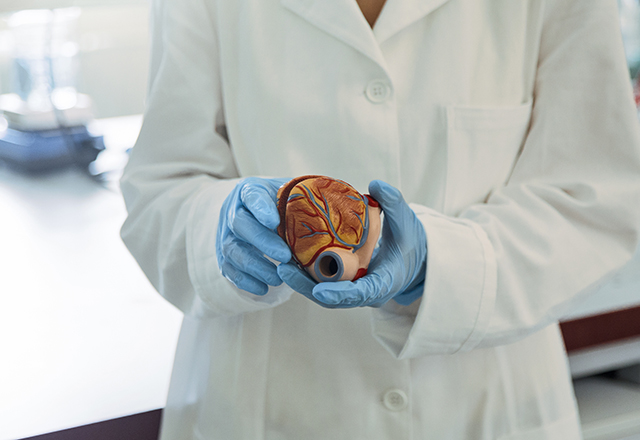Cadaver Lab Setup
The Johns Hopkins University School of Medicine’s curriculum is set up with eight weeks of basic human anatomy as our very first “real” class of medical school. Normally, students are in the lab Monday through Friday dissecting different parts of their cadavers to learn about the human body. However, COVID-19 restrictions have required the reduction of anatomy lab instruction to two days a week. Nevertheless, our first lab remained the traditional “meet the cadaver” session. In this session, we wrapped the cadaver’s hands and face in gauze as a sign of reverence and respect. We discussed the gift the donor had given us — the ultimate gift of their body to learn from. The session was a space for us to express our feelings openly and without judgment.
Initial Thoughts
I was more than a little apprehensive to begin lab. I had only ever dissected animals (pigs, sharks, mice), and the idea of touching a dead human body filled me with questions. Who was this person? Where did they come from? What was their life? Why had they decided to give us their body?
I decided that the best way to respect and honor the cadaver’s memory was to try to learn as much as I could from him. And so, my cadaver taught me about the muscles of the limbs and the organs of the abdomen. I counted out the cranial nerves and followed the pathways of intricate arteries and vessels. When concepts in textbooks were confusing, my cadaver provided a real example of the complexity and beauty of the human body. In all of its intricacies and variations, each body both the same and different, I felt honored to have been given this gift.
Humanity Even in Death
The humanity of the cadaver stayed with me throughout our dissections. As we looked into the cracked pieces of the skull, I was suddenly struck by the thought of what this organ represented. While our lab instructor detailed the arteries and nerves coursing through the cranium, my mind was elsewhere. I thought of the cadaver’s hopes and dreams, the memories he might have held close to his heart and never shared with anyone else. I wondered if he had regrets or if he felt fulfilled at the end of his life. These questions stayed with me even when I went home. Sometimes, even the simplest question haunted me: What was his name? This basic element of his identity was something I would never know, even as I became intimately acquainted with the exact pathways of tiny vessels in his body.
Throughout dissection, I had the odd urge to touch the cadaver’s hand or place my hand on his shoulder. It was a force of habit — wanting to comfort this human figure in front of me even when I knew it would not make a difference. It was a gesture reminiscent of my mother’s gentle hand when I would get a shot or a medical procedure. A gesture that said, “I’m here, you’re not alone.” Even in death, I hoped he did not feel alone.
My Cadaver Was My Constant
Throughout my first weeks in medical school, my cadaver has made me feel less alone too. In a way, he has seen me fumble my way through life in a new city, show up late to class, cut the wrong thing again (and again and again). He has remained a steady presence in a time of constant change, always there for me to learn from. Although we will no longer be returning to the cadaver lab weekly to dissect, my cadaver will remain a monument in my medical school journey. I will think of him as I continue growing and changing over the rest of my career, thanking him for the gift of education he gave me, and for his constant presence throughout a time when little else has felt stable. I may not know his name, but I will never forget him.
Related Content
- The Human Behind the Body: A Medical Student’s Experience with Cadaveric Dissection
- Fifteen Minutes of Companionship
- Anatomy: A Poem
Want to read more from the Johns Hopkins School of Medicine? Subscribe to the Biomedical Odyssey blog and receive new posts directly in your inbox.
